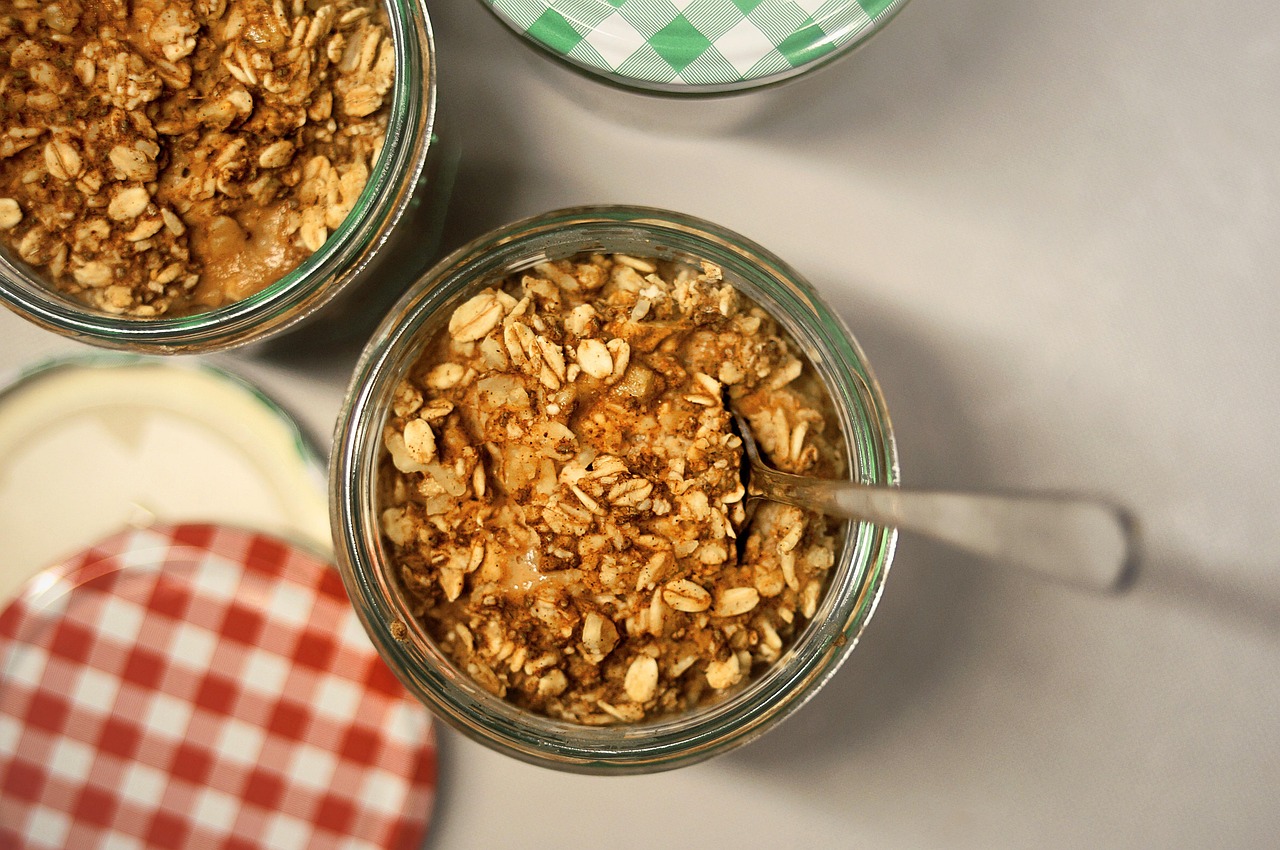
Sugar and Oats: Finding the Healthy Balance in Your Breakfast Bowl
Starting your day with a nourishing breakfast can set the tone for your whole day. Oats have long been celebrated as a healthy staple—but when paired with sugar, their benefits can diminish. In this article, we’ll dissect how sugar and oats interact in terms of health, and share scientific insights and practical tips for a smarter breakfast.
1. What Makes Oats Healthy?
Nutrient Powerhouse
Oats are a whole grain rich in complex carbohydrates, fiber (especially beta‑glucan), protein, B‑vitamins, and essential minerals like manganese (Healthline).
Heart Health & Cholesterol Reduction
The soluble fiber beta‑glucan in oats has been shown to reduce total and LDL cholesterol, contributing to improved heart health. Health authorities such as the FDA and EFSA authorize health claims for oat beta‑glucan at intakes of ~3 grams per day (zoe.com).
Blood Sugar Control & Diabetes Management
Oats help stabilize blood glucose by slowing sugar absorption thanks to beta‑glucan’s gel‑forming effect in the gut (Cleveland Clinic). Clinical studies even indicate significant reductions in post-meal glucose, insulin response, and improved insulin sensitivity in both diabetic and non-diabetic individuals (medicalnewstoday.com, en.wikipedia.org).
Satiety & Weight Management
Eating oats keeps you fuller longer, curbs appetite, and may support healthy weight loss or maintenance (Healthline).
Gut Health & Anti-Inflammatory Effects
Oats contain bioactive compounds, such as phenolics and avenanthramides, that support the immune system, reduce inflammation, and promote a healthy gut microbiota (pmc.ncbi.nlm.nih.gov).
2. Sugar: When It Undermines the Goodness
Added Sugar Risks
While oats themselves can be beneficial, many commercial oatmeal products are heavily sweetened with added sugars and sodium—diminishing their nutritional value (hsph.harvard.edu, dailytelegraph.com.au, Health).
Impact on Blood Sugar Spikes
Adding sugar raises the glycemic impact of oatmeal, which may negate its ability to moderate blood glucose and can lead to energy crashes later (hsph.harvard.edu, dailytelegraph.com.au, medicalnewstoday.com).
Social Media Myths vs. Reality
Recent social media trends have fueled skepticism about oats—claiming they deplete nutrients or spike sugar levels. Nutrition experts debunk these myths: nutrient loss from phytic acid is negligible in the context of a balanced diet, and uncontaminated oats don’t inherently harm blood sugar control (dailytelegraph.com.au).
3. The Science Behind Oats vs. Sugar
Oat Beta-Glucan Benefits
Clinical and cohort studies show beta‑glucan helps lower cholesterol, regulate blood sugar, promote gut health, and support immunity—when consumed regularly and in sufficient amounts (en.wikipedia.org, pmc.ncbi.nlm.nih.gov, zoe.com).
Comparative Studies on Processing & Glycemic Index
Research links processing methods (e.g., steel-cut vs. instant oats) with different glycemic responses. Whole or less processed oats generally have lower GI and more health benefits (dailytelegraph.com.au).
Meta-Analyses Confirm Benefits
Systematic reviews and meta-analyses confirm that regular oat consumption—with adequate beta‑glucan—can moderately improve cholesterol and blood sugar regulation (pmc.ncbi.nlm.nih.gov, sciencedirect.com, BioMed Central).
4. How to Enjoy Oats Healthily (Sugar-Smart Tips)
Tip Why It Matters Choose steel‑cut or rolled oats over instant versions Less processed, more fiber retention, slower glucose release (dailytelegraph.com.au, hsph.harvard.edu) Add whole-food sweetness like berries, banana slices, or cinnamon Adds flavor and antioxidants with less impact on blood sugar Include protein or healthy fats (e.g., nuts, seeds, yogurt) Slows digestion, enhances satiety, mitigates sugar impact (dailytelegraph.com.au, The Times of India) Limit added sugars; instead sweeten with a touch of honey or maple if necessary Prevents sugar overload and maintains oats’ benefits Aim for 3 grams of beta-glucan daily (roughly 1.5 servings of oats) Meets threshold for heart-health claims (en.wikipedia.org) Opt for certified gluten-free oats if you have celiac disease Reduces risk of cross-contamination (pmc.ncbi.nlm.nih.gov, en.wikipedia.org)
5. Final Thoughts
Oats are a nutritional champion: high in fiber, protein, antioxidants, and bioactive compounds—offering heart, metabolic, gut, and immunity benefits when consumed in their minimally processed form.
Sugar, especially added sugars, can dilute these benefits by undermining glycemic control and overall nutritional quality.
Smart tweaks—like using whole oats, minimizing added sugar, adding fiber, protein, and healthy fats—can help you harness the full health potential of oats.
Related Research & Further Reading
Review on oats' health‑beneficial properties (immunity, gut, cholesterol, type‑2 diabetes) (pmc.ncbi.nlm.nih.gov, dailytelegraph.com.au)
The role of beta‑glucan in glycemic control (en.wikipedia.org)
Healthline’s breakdown of oats’ benefits (Healthline)
Cleveland Clinic on oatmeal and blood sugar control (Cleveland Clinic)
Harvard's guide on keeping oatmeal healthy (avoid added sugar) (The Nutrition Source)
Mayo Clinic summary of oats’ nutritional power (Mayo Clinic Health System)
Social media myths about oats debunked by experts (dailytelegraph.com.au)
Health benefits overview of oats (Health)
Meta‑analysis: oats can support longevity and reduce disease risk (dailytelegraph.com.au)